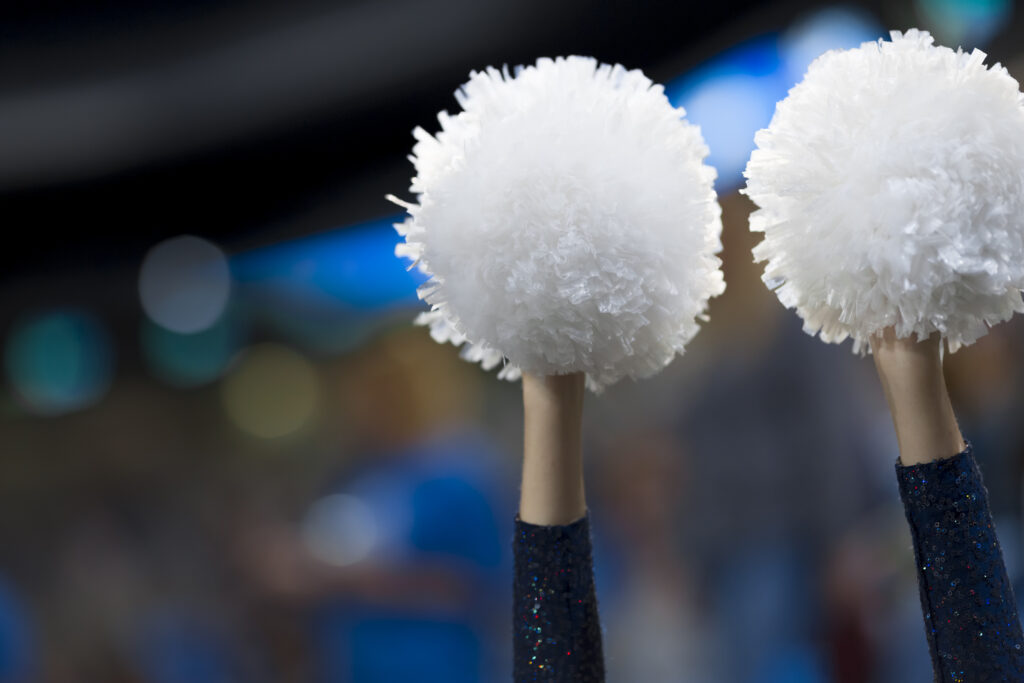A football game is an excellent metaphor for life and parenting. It doesn’t matter if you watched the Super Bowl or not. Today, we’ll dive into what does matter—identifying the role you must play (and those you must not) in your teenager’s life to make raising them SO much easier!
You’re suited up and on the field. Ready to play. You want to win the game. To win, you need the most points. Points are earned by reaching the end zone. That’s your goal. It lies at one end of the field, and you’re at the other. There are yards and yards between you. With every play, you have the opportunity to either move yourself closer or further away. In theory, it’s simple — run the ball to the goal and score. The more you score, the more you win.
In reality, though, it’s not so simple. Reaching your goal is NOT just up to you. You’re not the only player on the field, and the field isn’t wide open.
You have teammates – players with the same goal but varying roles in putting points on the board. Moving the ball forward takes cooperation and coordination among all eleven teammates. And it must be repeated, over and over again, to move your team down the field.
You also have opponents. Players on the opposite team. They stand between you and the end zone. Pushing against you with all their might. Not only do they want to keep you from your goal, but they also want to reach theirs. And it lies behind you. Making their efforts the exact opposite of yours. Every time you push forward, they push right back.
But players aren’t the only ones on the field impacting the game. There are also referees – the officials of the game. They ensure the game’s rules are followed and inflict penalties when they’re not. Player beware.
As if everything on-field wasn’t enough to keep you from your goal, there’s also what happens off the field.
Many coaches are on the sidelines—offense, defense, special teams, and the head coach. It’s their job to lead the team, motivate and inspire, guide and instruct, and, most importantly, ensure the team performs at its best to win the game. There’s a constant flow of information and players from sideline to field.
Next to them are the cheerleaders and the mascot. 📣 Rah Rah Shish Boom Bah 📣 They’re full of positive chants and cheers, smiles and claps, jumps and stunts—all to buoy you up and offer enthusiasm to . . .
The crowd – a stadium full of spectators judging every move you make. Cheering when things go right and booing when things go wrong. They keep score but in a much more cynical way. And when they’re bored or hungry, the concession stand is a stairway away.
Watching from the upper boxes, sportscasters relay the details of the game to the masses, adding their colorful opinions to the good and bad plays unfolding on the field. The recorded game available for all to see in perpetuity.
The game will rage on for hours. The ups and downs. The highs and lows. Every play an all-out battle to see who will win and who will lose. Each moment critical to the outcome. Some will celebrate the exhilarating win, while others will suffer agonizing defeat. But whether you win or lose, every player must play the game. And everyone has a role to play.
The big question is, what role do you play?
When your teenager is staring down the end zone (the goal) in their big game (life), what role can you play that will help them win?
Let’s eliminate anyone who’s not near the field. Yes, what they do impacts the game. But they’re too distanced and disconnected from the player. Because of that, the player will rarely attribute their influence to the results in any meaningful way. Therefore, the impact on the player is absent, making the roles of sportscaster, crowd, concession stand worker, half-time entertainer, etc., obsolete and non-influential.
Maybe it’s the cheerleader. The cheerleader’s role is always to be positive. Even when the team is losing, they drop into an upbeat chant, “We’re down, let’s turn it around, and get fired up!” Everything they do is meant to boost spirits and lift the team. You could say they’re expert pat-you-on-the-back celebrators of “You got this”, “I believe in you”, “It’s ok”, and “Yay, yay, yay! You can do it!” And while these pats may seem uplifting and inspirational – they typically fall flat. Feel insincere. And lack any power to create real change for the player.
It’s the same for you as a mom. Being a cheerleader feels good. Important even. Like you’re encouraging your teen toward their goal and their best self. But playing this role isn’t helpful. And often proves to do more harm than good. Cause your teen knows the cheerleader energy is WAY more about you than it is about them. They see through the supportive facade. And get the ick from the placating way you taunt them with cliches like, “Don’t give up” or “It’ll all work out.” Not only does this vibe rub them wrong, but it teaches them that you’re superficial. That you have no interest, and possibly no skill, in actually helping them, which means teaching them what they must know AND do to reach their goal. Instead, they learn you want the easy way out – a simple statement that acts as a solution – but it’s nothing even close to being helpful. It’s a false front pretending to be deeply profound. It’s easy. Takes little time. And even less of an investment. And your teen knows it.
The truth is – teens are perceptive. Extremely perceptive. They know when what you do feels good and when it feels off. They sense it even if they can’t describe what they’ve experienced. Their intuition kicks in, and they trust it. As they should. It’s a good thing. But if you’re prone to being the cheerleader. If it’s a pattern and role you find familiar and comfortable. It must stop. Because your teen will sense a lack of depth in your character as a result. And that will create a gulf between you. One that prevents them from really trusting and opening up to you. One that restricts them from interacting with you sincerely and honestly. This happens naturally; they don’t choose it – it’s a built-in response, a simple reflection of the superficial cheerleader energy they’ve received from you. (Read that again if you must) Give superficial, get superficial back. It’s that simple. If you’re to connect with your teen, which makes raising a teen easier, the gulf must be bridged. Truthfully – bridging it might seem hard, but it will be effortless when you learn to step into a more effective role with your teen. You’ll learn what that is in the coming weeks.
Football analogy lesson #1: Stop being the cheerleader. If you can do this on your own, GREAT! If you need help leaving your inner cheerleader behind, click CONTACT at the bottom of this page. I can help.




